US tightens pressure on Iran with sanctions ahead of nuclear talks
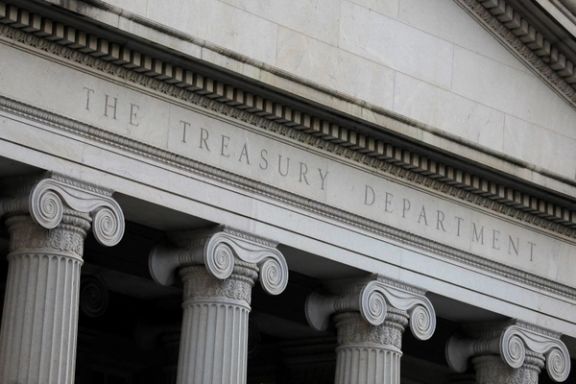
The United States on Wednesday imposed sanctions on five Iranian companies and one individual for their alleged support of Iran’s nuclear program, the Treasury Department said.

The United States on Wednesday imposed sanctions on five Iranian companies and one individual for their alleged support of Iran’s nuclear program, the Treasury Department said.
The action targets entities linked to the Atomic Energy Organization of Iran (AEOI) and its subsidiary, the Iran Centrifuge Technology Company (TESA), both of which play key roles in Iran’s uranium enrichment and nuclear development efforts.
The Treasury’s Office of Foreign Assets Control (OFAC) designated the firms under Executive Order 13382, which aims to curb the proliferation of weapons of mass destruction.
"The Iranian regime’s reckless pursuit of nuclear weapons remains a grave threat to the United States and a menace to regional stability and global security," said Treasury Secretary Scott Bessent. “Treasury will continue to disrupt Iran’s nuclear advances and broader destabilizing agenda.”
Among those sanctioned is Atbin Ista Technical and Engineering Company (AIT), accused of aiding TESA’s acquisition of foreign components. AIT's managing director, Majid Mosallat, was also designated for acting on behalf of the company.
Also blacklisted are Pegah Aluminum Arak Company, which supplies aluminum products to TESA, and Thorium Power Company (TPC), established in 2023 to develop thorium-fueled reactor technologies under the guidance of AEOI.
The designations further include Pars Reactors Construction and Development Company (Satra Pars) and Azarab Industries Co., both of which are involved in AEOI-led nuclear projects, including reactor construction and equipment production.
As a result of the sanctions, all US-linked assets of the designated individuals and entities are frozen, and US persons are generally prohibited from conducting transactions with them. Secondary sanctions may apply to non-US persons engaging in certain activities with the listed entities.
The sanctions come amid heightened nuclear tensions and just days before talks between the United States and Iran are set to take place in Oman on Saturday.
The upcoming negotiations, to be led by Iranian Foreign Minister Abbas Araghchi and US envoy Steve Witkoff, were announced on Monday by President Donald Trump, who has repeatedly threatened Iran with military action if it does not agree to a deal since returning to the White House in January.
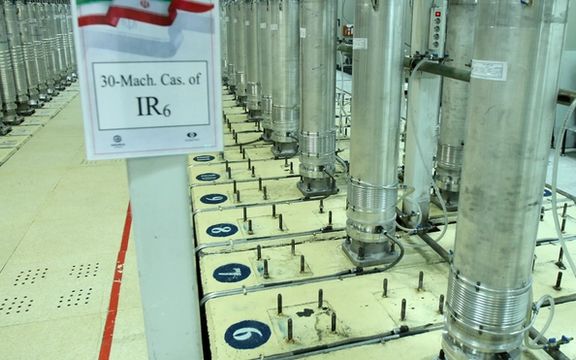
Frustrated ultra-hardliners are subtly warning Supreme Leader Ali Khamenei that making major concessions to Washington could risk a fate similar to Libya’s Muammar Gaddafi.
“Negotiation, whether direct or indirect, with [Qasem] Soleimani’s killers, those who murdered 50,000 people in Palestine, is not going to end well," warned Fatemeh Tashakori, an ultra-hardliner activist on X, referring to an Iranian commander assassinated in a US drone strike in President Donald Trump's first term.
"The reason: Gaddafi’s fate in Libya!” she added.
As US-Iran talks are set to begin on Saturday, Israeli Prime Minister Benjamin Netanyahu and influential US Senator Tom Cotton in recent days both said Tehran ought to follow the example of Libya and renounce weapons of mass destruction.
Tripoli under veteran strongman Muammar Gaddafi made the move in 2003, only to be toppled in a Western-backed uprising and murdered by armed rebels in 2011.
Another popular ultra-hardliner activist with 22,000 followers, @Ya_Fatemeh, echoed similar sentiments, arguing that Gaddafi complied with US demands—scrapped Libya’s nuclear program, limited missile ranges—and it only brought years of civil war. “Yes, that’s what the Libyan model negotiations are like.”
The Libyan civil war was primarily rooted in internal grievances against Gaddafi’s authoritarian rule, including political repression and corruption.
While the United States and NATO intervened militarily in 2011 to prevent a massacre in Benghazi, they did not start the uprising. The conflict began as part of the broader Arab Spring uprisings, with Libyans taking to the streets demanding change well before any foreign involvement.
Ultra-hardliners who claim to be Khamenei’s most loyal—and only—true followers are well aware that the upcoming talks in Oman would not be happening without his tacit approval.
Though they stop short of naming him directly, the implication is unmistakable—and widely noted on social media. “Shame on you for comparing the Leader of the Revolution with these three people,” hardliner figure Mohammad-Ali Ahangaran, who has nearly 28,000 followers on X, wrote in response to a post that invoked the fates of Egypt’s Hosni Mubarak and Iraq’s Saddam Hussein.
In their opposition to renewed nuclear talks between Tehran and Washington, ultra-hardliners frequently cite Israel’s influence over the Trump administration, particularly its push for the total dismantling of Iran’s uranium enrichment program.
“America and Israel’s Main Strategy Against Iran: Libyazation of Iran,” read the headline of a Raja News article—the outlet affiliated with supporters of former nuclear negotiator Saeed Jalili an ultra-hardliner ideologue.
The piece referenced statements by Israeli Prime Minister Benjamin Netanyahu and US Senators Tom Cotton and Lindsey Graham advocating the use of the "Libyan model" in dealing with Iran’s nuclear program.
While Israeli media reported that Netanyahu discussed the Libyan model during his recent visit to Washington, the US stance remains ambiguous, as Trump gave no firm indication on whether he would adopt the model.
Ultra-hardliners recently warned that the Islamic Republic was risking alienation of its staunchest supporters, who they said make up the “solid core of the system”, if authorities continued suspending strict hijab enforcement.
Often referred to as “super-revolutionaries” by rival conservatives, most ultra-hardliners have strong links to the Paydari (Steadfastness) Party and a group known as MASAF. The two parties form the majority in the Parliament.
Last week, Iran’s Press Supervisory Board issued a rare warning to Kayhan newspaper, a leading ultra-hardline publication, after it published an article interpreted as a threat to assassinate Trump over the 2020 killing of Soleimani. The paper later claimed the piece was satirical.
Officials have made clear that tolerance for dissent against the talks, even from the far right, will depend on the outcome of negotiations—and the Supreme Leader’s position.
Some hardline publications appear to be adjusting their tone. An editorial by Gholamreza Sadeghian, chief editor of the Revolutionary Guards (IRGC) linked Javan newspaper, for instance, said on Wednesday that Iran may agree to reduce its enrichment levels but warned that this should not be viewed as a concession.
In return for reduced enrichment and increased inspections by the UN nuclear watchdog, IAEA, Iran should demand full sanctions relief and an end to Western support for the Islamic Republic’s opposition, the editorial argued.
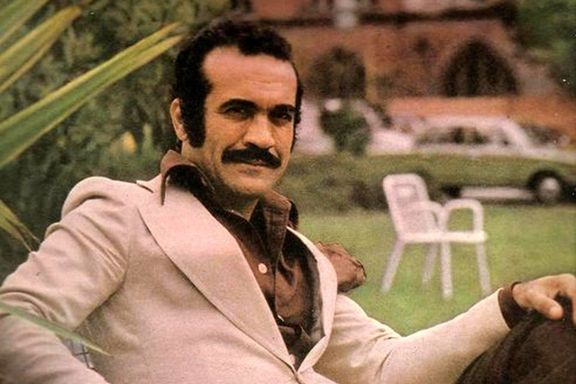
Germany’s Federal Prosecutor says the investigation into the 1992 murder of dissident Iranian singer Fereydoun Farrokhzad remains open, following claims by an ex-IRGC official that the Islamic Republic ordered the killing in Bonn.
Mohsen Rafiqdoost, a founding member of the Islamic Revolutionary Guard Corps (IRGC) and its minister from 1980 to 1999, recently described his role in funding covert operations abroad. His statements indicated that Iran was directly involved in orchestrating political assassinations beyond its borders, including the 1992 murder of Farrokhzad in Bonn, Germany.
Ines Peterson, a spokeswoman for the German Federal Prosecutor, told Iran International that “I can only inform you that the case of Mr. Fereydoun Farrokhzad is not closed, but still under investigation. As a rule, however, we do not comment on details or alleged suspects. Likewise, we do not comment on motions or requests made by third parties to our office. Therefore, I can only confirm that we have received the email you have mentioned.”
The E-mail that Peterson referenced was a letter sent by the German-Iranian activist Behrouz Asadi from the group Forum Woman, Life, Freedom.
The group urged the Federal Prosecutor, Jens Rommel, “to intensify the criminal investigation into these matters – regardless of political considerations. It is of utmost importance that the Federal Prosecutor's Office exhaust all legal means at its disposal to identify those responsible, hold them criminally accountable, and take appropriate measures to protect democracy and public security in Germany.”
The German Federal Criminal Police Office (BKA) proposed, according to a 2024 report by North German Broadcasting, the theory that Iran’s government executed Farrokhzad because he mocked Iran’s religious leaders during his concerts. The BKA reported said Farrokhzad said during one concert appearance that he had sex with Islamic clerics.
Farrokhzad, who publicly declared his homosexuality at a time when many gay entertainers remained in the closet, frequently ridiculed the Islamic government's restrictions on sexuality.
German-Iranians have long criticized the authorities in the Federal Republic for showing no appetite to solve Farrokhzad's murder case.
Asadi continued that “There is increasing evidence that the IRGC is directly involved in the planning, organization, and execution of assassinations and attacks against opposition figures and dissidents in Europe,” especially in Germany and France, the statement notes. It highlighted the 1992 killing of Farrokhzad as a particularly serious case, adding that legal proceedings are still pending.
When questioned about Farrokhzad’s murder in Bonn, a spokesman for the prosecutor’s office for the former capital of Germany, Martin Kriebisch, told Iran International “The exclusive responsibility for any statements concerning your inquiry is with the Federal Public Prosecutor General, so I kindly ask you again to address further inquiries directly there.”
Kriebisch initially sent Iran International’s press query to the Munichprosecutor’s office, which replied that the crime was in Bonn and Munich would be the wrong place to refer to.
Asadi’s letter added that “ In particular, there are statements indicating that high-ranking IRGC representatives—including Mohsen Rafiqdoost - were directly involved in the planning and execution of this crime. In several interviews, he has spoken openly about the elimination of opposition figures, particularly the targeted killing of Mr. Farrokhzad.”
Mina Ahadi, a German-Iranian dissident who is slated to start a speaking tour this month in the US, brought up the case of Iran’s former ambassador to Germany, Seyed Hossein Mousavian, who is currently a researcher at Princeton University, and called for his arrest by authorities because of his alleged role in the murder of Farrokhzad.
Mousavian wrote on X that “After reading the interview with Mohsen Rafiqdoust, ex-IRGC minister, I was stunned, amazed, and shocked...At that time, I was the Iranian Ambassador to Germany, and along with my colleagues at the embassy, I made extensive efforts for the return of Iranians residing in Germany who wanted to return to Iran.”
Iran International reported that Mousavian allegedly played a role in the assassinations of more than 20 Iranian dissidents in Europe in the 1990s, including Farrokhzad. Mousavian, who was Iran’s ambassador to Germany from 1990 to 1997, has vehemently denied the allegations that he was involved in the mass assassination of Kurdish dissidents at the Berlin restaurant Mykonos in 1992.
The former high-level Islamic Republic of Iran intelligence agent, Abolghasem Mesbahi, said during the Mykonos trial in 1997 that "Mr. Mousavian had a role in most of the assassinations committed in Europe."
In late March, the Iranian-American human rights activist Lawdan Bazargan, who oversees the campaign, The Alliance Against the Islamic Regime of Iran Apologists (AAIRIA), issued a call “for the immediate arrest and prosecution of Mousavian for his direct role in Iran’s state-sponsored assassinations across Europe.”
AAIRIA organized a protest in at Princeton in April 2024 to demand Mousavian’s dismissal. Mousavian and Princeton University’s President Christopher Eisgruber refused to answer multiple Iran International press queries about Farrokhzad.
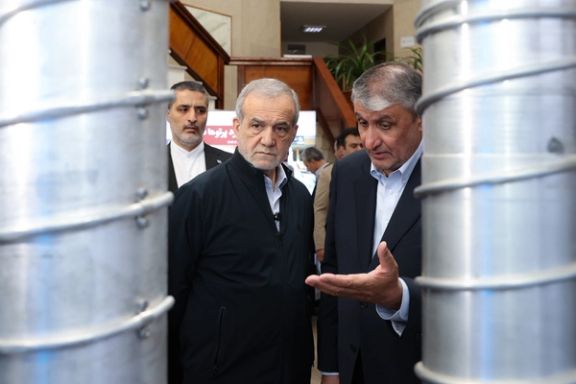
Iran’s president said Wednesday the country has never sought nuclear weapons, as officials marked National Nuclear Technology Day with a showcase of domestic achievements, days ahead of renewed talks with the United States.
“We do not want a nuclear bomb and never have,” President Masoud Pezeshkian said at a ceremony in Tehran. “We seek peace, security and dialogue — but dialogue rooted in dignity and independence. We will not retreat from our scientific and technological achievements.”
The president spoke at an exhibition of nuclear developments, where he inaugurated several new projects. He criticized Western powers for what he called leading the world into “war and destruction under the banner of civilization and peace,” and insisted Iran would not allow others to dictate its path.
Atomic Energy Organization head Mohammad Eslami said Iran was entering a new phase of nuclear development, including the production of medical radioisotopes and advancements in agriculture and power generation.
“Despite all threats and sabotage, our scientists are moving forward stronger than ever,” Eslami said.
In a separate statement, the Iranian parliament’s National Security and Foreign Policy Commission warned that “any threat to the peaceful nuclear industry will face a serious, decisive and destructive response.” The statement reiterated Iran’s right to nuclear technology under the Non-Proliferation Treaty.
The comments come as Iranian and US negotiators prepare to meet Saturday in Oman for indirect talks focused on Iran’s nuclear program and potential sanctions relief. Tehran has signaled openness to diplomacy but remains wary of US intentions.
Foreign Minister Abbas Araghchi has said the talks are “a new opportunity for diplomacy” and the sole focus will be confirming the peaceful nature of Iran’s program in exchange for lifting what he called “cruel sanctions.”
The upcoming talks have drawn attention amid rising regional tensions and diverging views in Washington and Tehran on the path forward.
Iran's nuclear program has advanced to a stage where it could potentially enrich sufficient uranium for several nuclear fission weapons within weeks.
Iran’s enriched uranium stockpile remains under monitoring and verification by the UN’s nuclear watchdog, but the agency has no longer daily access to the Natanz and Fordow enrichment facilities.
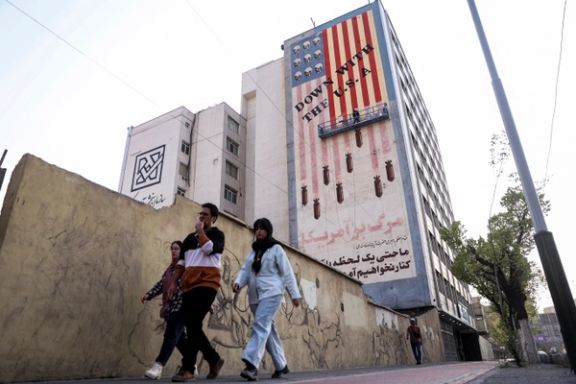
Whether direct or indirect, top diplomats from Iran and the United States are expected to meet in Oman on Saturday. The mere prospect of their presence in the same place at the same time has lifted spirits in Tehran.
While some hardline lawmakers in the Iranian parliament reiterated their distrust of Washington on Tuesday, public sentiment—particularly online—appears more hopeful.
Despite continued criticism of Supreme Leader Ali Khamenei and frequent jokes about President Donald Trump “breaking the ayatollah’s will,” the mood on social media suggests widespread excitement and a degree of optimism about the talks.
In one of the first reactions to the announcement, former lawmaker Ali Motahari said, “Many in Iran want direct negotiations, and opponents of the talks cannot stand in their way.”
He added, “Whether direct or indirect, participating in negotiations is a decision backed by the entire Iranian political system.” According to Motahari, “a majority of Iranians want an agreement between Tehran and Washington—an agreement that would lift the sanctions.”
Public criticism of hardline figures like Kayhan editor Hossein Shariatmadari, along with a rise in the value of the Iranian currency, appeared to support Motahari’s point. He told Khabar Online that “hardliners only want to make their presence felt; beyond that, they can’t actually prevent negotiations.”
Foreign Minister Abbas Araghchi echoed a similar message in remarks to state television. “What matters is ensuring that both sides are serious about negotiating,” he said, while emphasizing again that no arrangement has been made for direct talks.
The shift in tone among Iranian officials in recent days, including military chief Mohammad Bagheri—who expressed support for negotiations—has signaled a broader change in the country’s mood toward diplomacy.
Former Foreign Minister Mohammad Javad Zarif, in a post on X, expressed confidence in Araghchi's leadership. “It is heartwarming to know that Araghchi is heading the talks for Iran. He is knowledgeable, serious, and committed to reaching an agreement based on national interests and mutual respect. Things will go well if the US delegation approaches the talks with the same seriousness and respect for Iranian interests.”
Zarif added: “Now it is the United States’ turn to cooperate in building a better future for the region and the world.”
Commenting on Trump’s decision to announce the Oman talks himself, Iranian journalist Niloofar Ghadiri noted in a post on X: “One of the main differences in this round of negotiations is that the first leak to the media came directly from the US president.”
Meanwhile, Mohammad Hossein Khoshvaqt—a relative of Khamenei and director of the pro-reform Fararu website—offered a provocative comment on X: “What would you say if you found out that Iran had launched a one-trillion-dollar project and hadn’t barred American investors from participating?”
In contrast, hardline daily Kayhan pushed back forcefully on Trump’s claim that a military option remains on the table if talks fail. “America is bluffing,” the paper wrote in its first article on the statement. “There will be no military attack. Any US military action would cause havoc in the region.”
The editorial added: “Even a limited military action will provoke Iran to destroy the Israeli regime.”
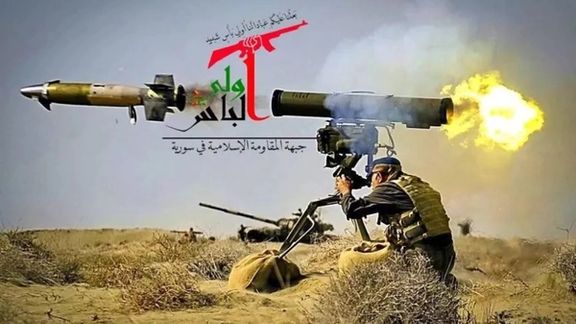
A new Iran-backed militant group, Uli al-Baas, has emerged in Syria, positioning itself against the United States and its regional allies, Newsweek reported on Tuesday.
Newsweek quoted the group, officially known as the "Islamic Resistance Front in Syria - Uli al-Baas," as saying it is aligned with the broader Axis of Resistance, a coalition of Iran-backed political and military actors in the Middle East such as Hamas in Gaza, the Houthis in Yemen, and Hezbollah in Lebanon.
"Uli al-Baas is a faith-based, revolutionary, nationalist movement with an Arab nationalist dimension, unaffiliated with any existing organization in Syria," the group's political office told Newsweek, adding that it does not support the current ruling government.
"It [the group] has its own political project of resistance that guarantees the establishment of a strong, capable, and freedom-supporting state," the group added.
While Uli al-Baas said that it is "not affiliated with any regional party or any country," logos used, particularly the raised Kalashnikov-style rifle, mirrors the signature style of Iran's Revolutionary Guards (IRGC) and has been adopted by other Axis of Resistance groups, including Hezbollah and Iraqi militias.
Newsweek also quoted the group speaking about the Islamic Republic, in what appeared to echo similar manifestos of Tehran's allied groups.
"As for the constant threat posed to the Islamic Republic of Iran, this is because it maintains an independent identity and refuses to submit," Uli al-Baas said,
"However, the truth is that Iran is challenging the advanced state in West Asia, namely the Zionist entity," the group added.
Experts suggest that the group may have originated from Iran’s efforts to maintain influence in Syria, a key Arab ally under the ousted Bashar al-Assad government.
“While UAB’s kinetic capabilities remain unproven, its emergence could signal the early stages of a new Iran-backed militia formation in Syria, an outcome that was always likely post-Assad,” a Washington Institute analysis said in March.
The group has since published the Newsweek story on their Telegram channel.